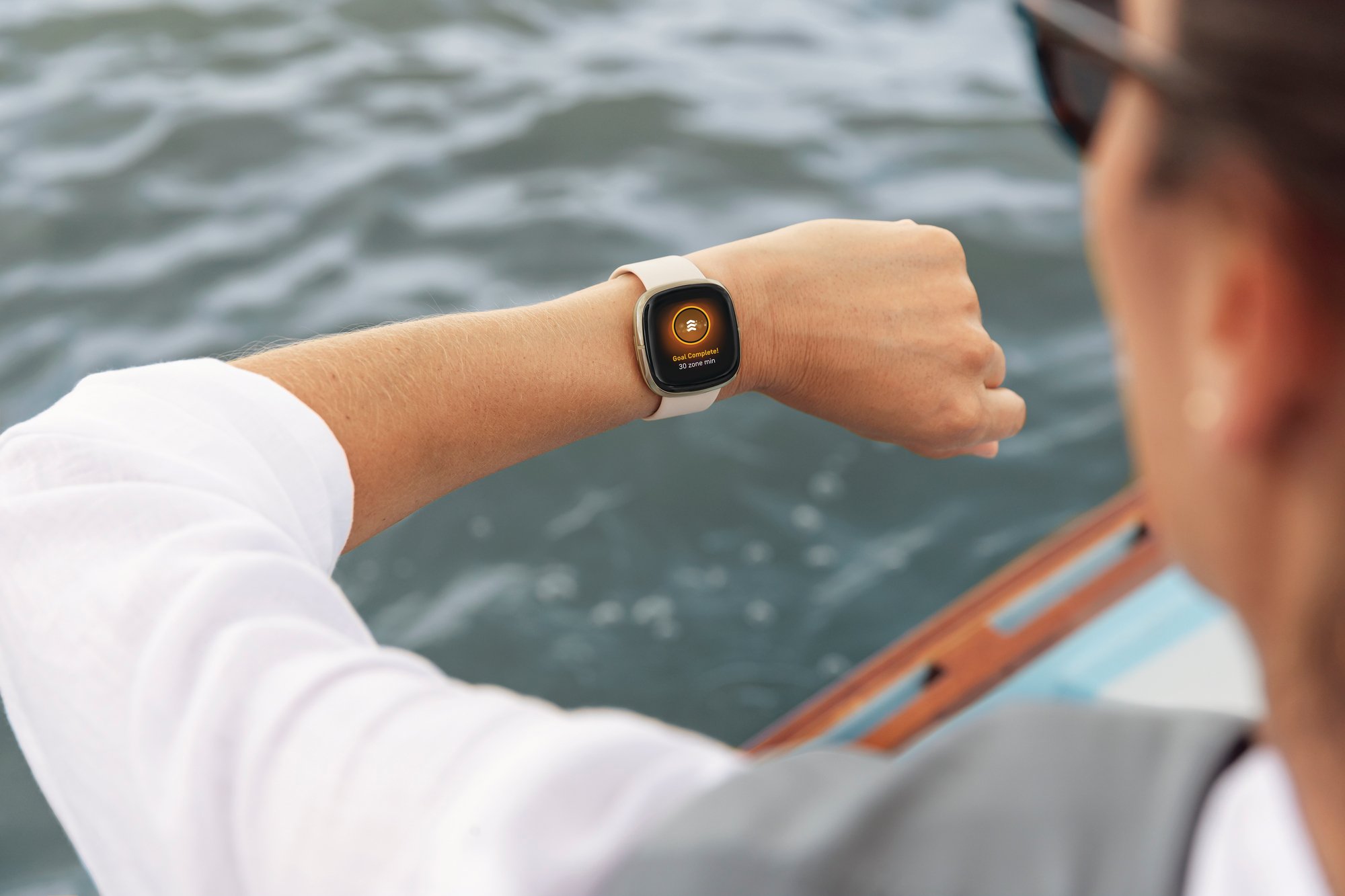Fitbit (FIT +0.00%) was started in 2006 after now-CEO James Park was inspired by the Nintendo Wii with its combination of sensors, hardware, and software that created an engaging, physically active, and fun gaming experience. Park wanted to use this same combination to help people become more active and healthy, and the idea of Fitbit was born. Since then, the company has sold 76 million wearable devices, but wants to be known for more than its fitness trackers.
Park has set his sights on Fitbit being a "digital health platform." Read on to find out why he thinks the healthcare system is broken and what the company is doing to deepen its reach into healthcare.
The problem
"We believe that the healthcare system is broken, and a shift toward outcomes and prevention is required to reach ... full potential and bring real benefits to patients," Park said during the company's February conference call with analysts.
Fitbit believes that healthcare is too focused on fixing health issues after they've occurred and not enough time preventing them. Prevention involves the hard process of creating regular healthy habits and this is where Fitbit believes that its technology can help people.

Image source: Getty Images.
"... empowering individuals to take control of their health can have a profound impact in health and fitness outcomes. What is becoming increasingly clear is that meaningful and sustained behavior change is hard and requires care and support that extends beyond the doctor's office," said Park during the conference call.
The company has been in the business of coaching and inspiring people to live healthier lives since its inception.The company's 25.4 million active users receive friendly nudges to reach daily goals, for instance, or receive reminders to move every hour. Fitbit also sees a market among the over 100 million people in the U.S. estimated to have prediabetes, diabetes, or hypertension.
The company recently expanded its coaching into the healthcare space with the acquisition of Twine, which uses a combination of software and human coaching interactions to help patients stay on track for managing conditions such as diabetes and hypertension. Twine can even be used to help people trying to quit smoking or lose weight.
Fitbit and the healthcare ecosystem
A natural place for Fitbit's technology to make an impact in healthcare is with the largest U.S. health plan, UnitedHealth Group. The insurer found a positive correlation between people who are more active and lower healthcare costs. This bleeds over to employers trying to keep their healthcare costs down by keeping employees active.
UnitedHealth Group and Fitbit teamed up to create the Motion program, where participants can earn up to $1,500 per year by engaging in daily fitness-related activities automatically captured by Fitbit's trackers. This program has already paid out over $19 million to its members. Fitbit is looking to do more partnerships like this one.
Fitbit's technology is also making a difference in how health research studies are done as it allows broad data collection. Fitbit was chosen as the first wearable to be used in the National Institute of Health's "All of us" study, which targets 1 million study participants all across the U.S. with the goal of developing more effective ways to fight disease.
Perhaps the most exciting healthcare development for Fitbit is that Fitbit was selected as one of nine companies in the FDA's digital health precertification pilot program. This pilot provides for the possibility of Fitbit's development process to be FDA pre-approved, allowing a fast-track approval of any software used for medical purposes.
Fitbit's efforts to become what Park calls a "true digital health platform" are just getting started. Making money from these opportunities could come via subscription revenues from health-related coaching services or from selling software as a medical device or from companies that pay Fitbit to help them lower healthcare costs of employees. Today these efforts make up less than 10% of the company's revenue, but if Park has his way, they will be a much bigger part of how we think about healthcare in the future.





